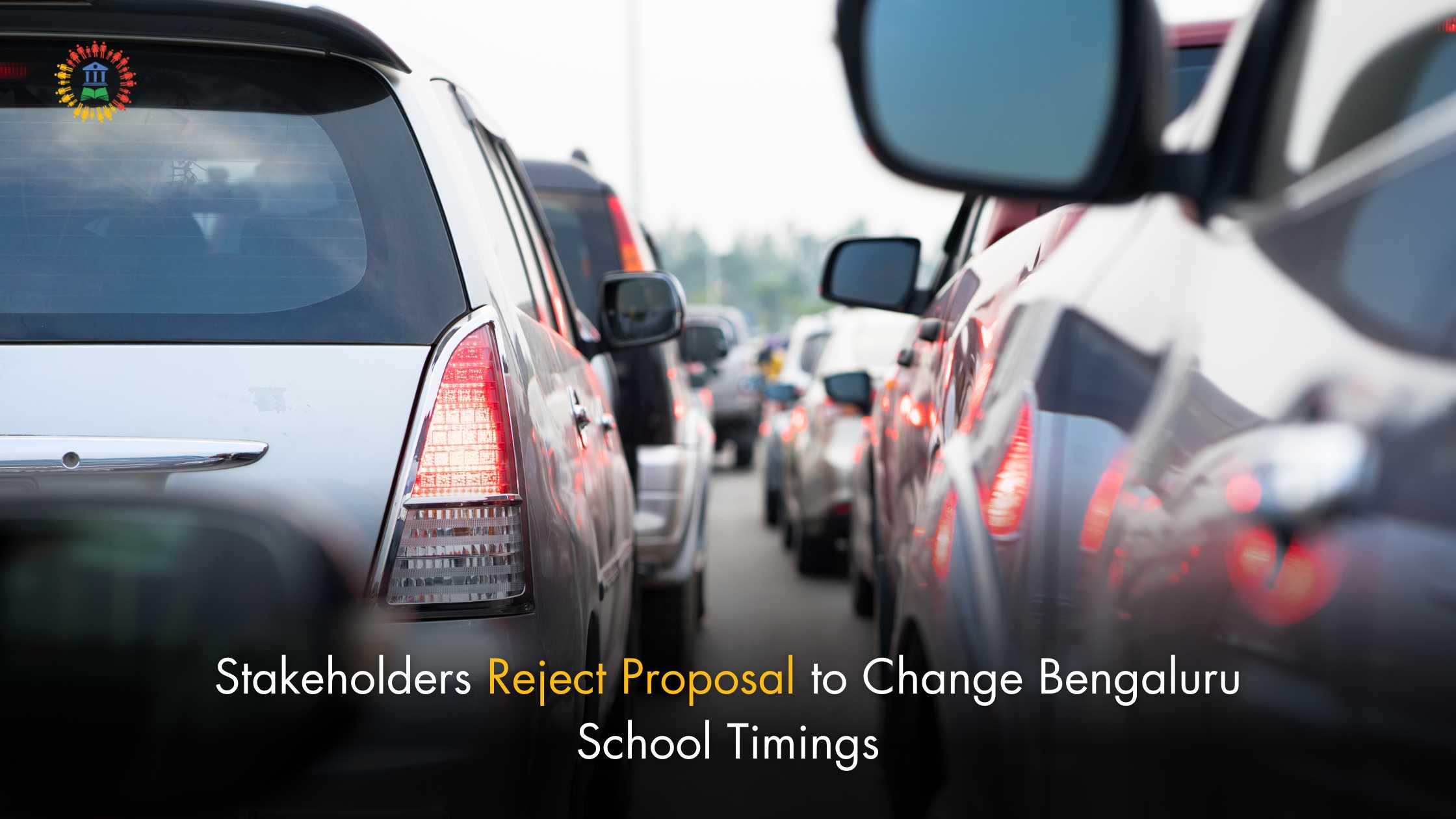
Bengaluru is one of the most congested cities in India, and its traffic situation has been worsening in recent years. This has led to a number of problems, including late arrivals and early departures from schools, which has in turn impacted the quality of education.
In September 2023, the Karnataka High Court directed the state government to consider changing school timings as a possible solution to the traffic problem. The court suggested that schools could be made to start earlier or later in the day, depending on their location.
Stakeholder Meeting
On October 9, 2023, the Department of School Education and Literacy held a meeting with all stakeholders to discuss the proposal to change school timings. The meeting was attended by representatives from the government, traffic department, BMTC, aided and unaided schools, and teachers and parents.
Stakeholder Concerns
All stakeholders present at the meeting rejected the proposal to change school timings. They raised a number of concerns, including:
- Disruption to daily routines: Changing school timings would disrupt the daily routines of students, teachers, and parents. This could have a negative impact on their productivity and well-being.
- Impact on extracurricular activities: Changing school timings would make it difficult for students to participate in extracurricular activities, such as sports and music. This could deprive them of opportunities to develop their talents and interests.
- Increased risk of road accidents: Changing school timings would mean that students would be traveling during peak traffic hours. This would increase the risk of road accidents.
- Lack of evidence of effectiveness: There is no clear evidence that changing school timings would be an effective solution to the traffic problem.
Alternative Solutions
Stakeholders suggested a number of alternative solutions to the traffic problem, such as:
- Local regulation of traffic at hotspots: The traffic department could locally regulate traffic at hotspots near schools. This could involve measures such as changing traffic signal timings and deploying more traffic police.
- Deployment of more traffic wardens at critical points: The traffic department could deploy more traffic wardens at critical points near schools. This could help to ensure the smooth flow of traffic and prevent congestion.
- Making civic sense part of the school curriculum: Civic sense education could be made part of the school curriculum. This could help to teach students about the importance of road safety and traffic rules.
- Promoting public transportation and carpooling: The government could promote public transportation and carpooling to reduce the number of vehicles on the road. This could be done by providing incentives to people who use public transportation and carpool.
Conclusion
The proposal to change school timings in Bengaluru was rejected by all stakeholders involved. Stakeholders raised a number of concerns about the proposal, including the disruption to daily routines, the impact on extracurricular activities, the increased risk of road accidents, and the lack of evidence of effectiveness.
Stakeholders suggested a number of alternative solutions to the traffic problem, such as local regulation of traffic at hotspots, deployment of more traffic wardens at critical points, making civic sense part of the school curriculum, and promoting public transportation and carpooling.
The Karnataka High Court has scheduled another hearing on the issue on October 10, 2023. It remains to be seen whether the court will order the state government to change school timings or whether it will accept the stakeholders’ alternative solutions.
Recommendations
In light of the concerns raised by stakeholders, the following recommendations are made:
- The government should focus on implementing the alternative solutions suggested by stakeholders, such as local regulation of traffic at hotspots, deployment of more traffic wardens at critical points, making civic sense part of the school curriculum, and promoting public transportation and carpooling.
- The government should conduct a study to assess the impact of changing school timings on students, teachers, and parents. This study should take into account the concerns raised by stakeholders and should also consider the potential benefits of changing school timings, such as reduced traffic congestion and improved air quality.
- The government should engage in consultations with all stakeholders before making any decisions about changing school timings. This will help to ensure that all concerns are addressed and that the best possible solution is implemented.